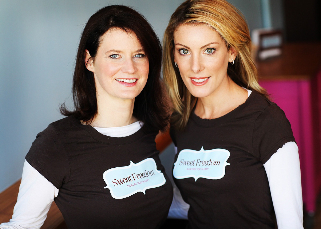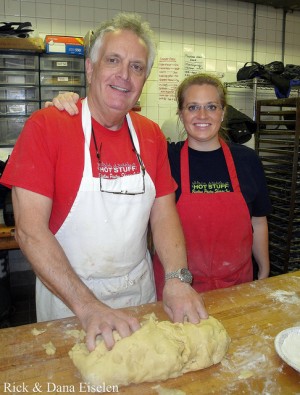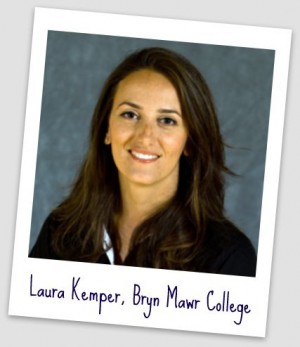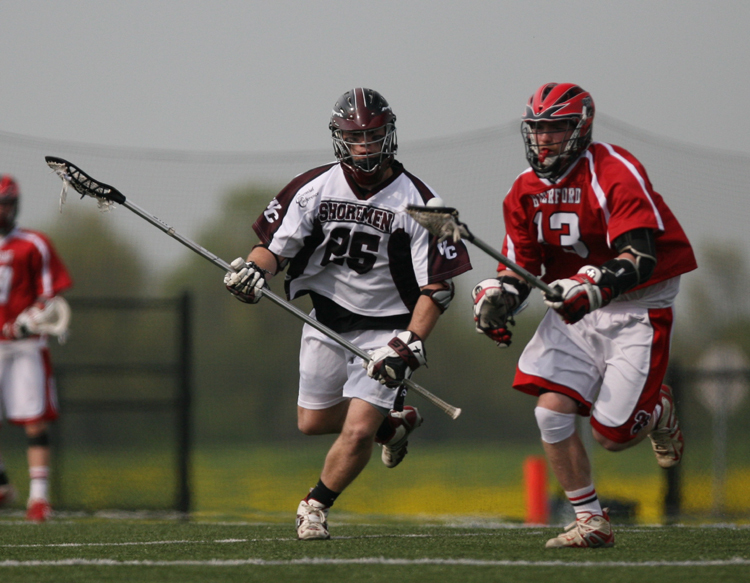The grand plans and busy life of Luz Jimenez, owner of Los Gallos Restauran
By Olivia Haber-Greenwood
Ask Luz Jimenez a direct question, he will answer you directly.
“Do you believe in the American Dream?”
“Yes.”
Looking around his bustling grocery store and growing restaurant, where a young Mexican couple feed their toddler bites of quesadilla next to chatty FBI agents with full sleeves of tattoos, it does feel awfully believable, tangible, tastable.
Los Gallos, a taquería and Mexican grocery located at the corner of 10th and Wolf Streets in South Philadelphia, is the successful result of the hard work of its hustling owner and his family..
“I’m here 14 to 16 hours a day,” says Jimenez, 31, who has owned Los Gallos since he opened it a year ago. The front half of Los Gallos is a grocery store; the back half is a taquería with just six tables and a handful of newspaper reviews mounted on the walls. Jimenez is seated at the table that abuts a fruit hutch hung with paper mache pears and oranges, and displays pineapples, avocados, limes, tomatoes, and jalapeño peppers arranged in wicker baskets.
Wearing a blue sweater and baseball cap over his dark hair, he greets each person that walks past the fruit to sit down at a table. He is affable, gregarious, always moving. A charmer who can slip between Spanish and English in mid-sentence.
He says to a young man with piercings and skinny jeans selecting a glass bottle of Jarritos soda: “Hola, amigo, que dice?” meaning approximately: “Hey, man, whad’ya say?”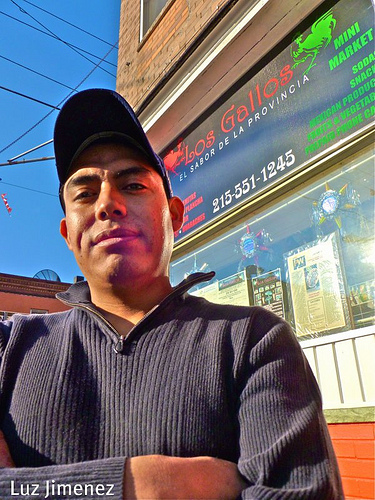
Three Anglo men in sweatshirts walk in and sit at a table next to the counter.
Hola amigo!
“Hey guys, how’s it going?” Jimenez welcomes them, speaking English with hardly a trace of an accent. “Thanks for coming in.” They nod and smile back, turning to the menus that Lupe, his cousin, puts in front of them.
“Everything here is made from scratch,” says Jimenez, moving his hands across the green table top like an umpire calling a runner safe as they slide onto home plate. This call is black and white, his standards for Los Gallos are not negotiable.
If a tomato is served in this establishment, Jimenez can vouch it was chopped that very day. He starts each day early in the morning, working in the kitchen with this brothers and cousins doing prep work for the food that will be served later.
“What I have tried to do here” he says, “is something a little different. I want people to have a reason to come here.”
Is the aroma of Mexican sausage and spices that you can smell wafting up the street a block away not reason enough?
“This is mostly an Italian neighborhood,” he says, “and, I’m not going to say,” he pauses and glances at two Latino guys drinking coffee at the adjacent table, “I’m not going to say they’re racist. But sometimes, it feels like that. I used to hear people walking by, saying ‘This is an Italian neighborhood’, you know?”
Jimenez wasn’t much fazed by the frosty reception. He set about getting his neighbors inside Los Gallos. “I tempted the Italians to try my food. They said they wanted some hard shell tacos like at Taco Bell.” He laughs, shaking his head.
“I said, ‘no, this is better than Taco Bell,’ they said ‘No, I don’t think so, Taco Bell is real Mexican food, this is crap!” But, he is happy to report, he won a lot of them over. Continue reading →



